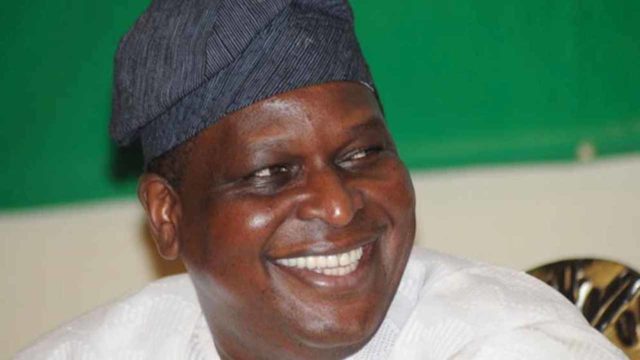The National Council for Arts and Culture (NCAC) Director-General, Chief Olusegun Runsewe, has urged President Bola Tinubu to prioritize the creation of separate ministries for tourism and culture in the country.
This, he said had become necessary in order to promote the advancement of the industries. He said this at a training session organized by the National Institute for Hospitality and Tourism.
Chief Olusegun Runsewe emphasized the importance of establishing an independent ministry for tourism and culture, arguing that this would help bridge the communication gap that currently exists between the private and public sectors in the tourism industry.
Runsewe pointed out that the existing Federal Ministry of Information and Culture was too large and had failed to adequately address the specific needs of the tourism and culture sectors. He stressed that managing public information in a country as vast and complex as Nigeria was already a challenging task, adding that combining it with providing leadership in the culture sector, which played a crucial role in national integration, peace, and development, further complicated the matter.
“The federal government should therefore see to the possibility of creating a stand-alone Ministry of Culture and Tourism.
“This has been a recurring demand anywhere the issues of moving the tourism and culture sector is being discussed by professionals in the last couple of years.
“It is my conviction that a stand-alone Ministry of Culture and Tourism is an idea whose time has come,” he said.
Runsewe also emphasized the importance of establishing platforms for regular interactions among tourism stakeholders to effectively address the communication gap between the private and public sectors. This, he believed, was crucial for the advancement of the tourism industry.
Chief Runsewe further advised practitioners in the tourism and culture sectors to maintain high professional standards and integrity while actively seeking strategic partnerships. He stressed that tourism was a specialized field that demanded professional skills and expertise for its successful development and growth.
“In all the countries such as Spain, France, the USA, and South Africa, where tourism is a serious business with huge economic returns, the sector is populated with professionals who know the global technicalities of tourism.“They are also able to adopt that knowledge to meet the peculiar realities of their environments.
“In Nigeria, the tourism business appears to be an all-comers’ affairs, if anybody who has the means can wake up overnight to set up a tourism business, how do we expect the sector to move forward?“No matter what you communicate, as long as it is not profit maximization, such people will never understand or flow with it.
“The public sector tourism organizations that are manned by those who do not know the technicalities of the sector have to be sensitized,” he said.
Runsewe encouraged tourism and travel media to play an active role in shaping the growth of Nigerian tourism by actively working towards minimizing the existing communication gap in the sector.He emphasized the importance of the media consistently highlighting and bringing to the fore-front of national discussions, the topics concerning global best practices in tourism.
By doing so, he pointed out, the media could contribute to raising awareness and promoting discussions that were essential for the development of the tourism industry in Nigeria.
“The media should take it upon themselves to inform and mobilize all stakeholders in the industry to take the required step in adopting the right approach toward building a dynamic tourism sector for Nigeria.
“Journalists are formidable agents of social change and ANJET as agents of development communication should lead the campaign to influence public opinion that will lead to the change necessary.”This will enhance communication and healthy institutional partnership necessary for sustainable growth,” he said.
NAN
